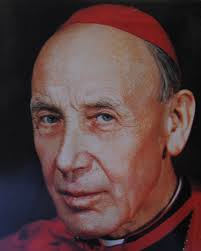
The Patriarch has already arrived in Jerusalem and will meet the Pope on four occasions. They already know one another. Patriarch Bartholomew was the first Patriarch to attend a Papal inauguration since the schism of 1054. He was able to do so because Pope Francis called himself the Bishop of Rome when he first appeared on the balcony of St Peter's after his election, rather than the universal Pontiff - one of the points of conflict between the two Churches. This simple gesture had the touch of genius. It did away with centuries of animosity and made possible an invitation to the Pope to meet the Patriarch in Jerusalem. Another significant moment will be when they pray together in the Church of the Holy Sepulchre which has been the cause of so much feuding among Christian denominations that none of them could be entrusted with the key which has been for centuries in the safekeeping of a Muslim family.
The Pope's concern in this visit is with Christians, particularly those suffering because of the conflict in the area. His itinerary includes a visit to Mahmoud Abbas, the President of the State of Palestine and though he will also meet with Mr Benjamin Netanyahu, the recognition of the State of Palestine is sure to cause some criticism. Already there have been protests and threats against Christians by Israeli extremists as well as the desecration of several holy sites. It will not be possible to transcend the political situation in Israel/Palestine. But the Pope intends to witness to peace and friendship because included in his entourage will be his good friend Rabbi Abraham Skorka and Imam Omar Aboud, both from Buenos Aires. I'm sure the Pope will talk about dialogue, reconciliation, peace and friendship but like his gesture on the balcony of St Peter's, traveling with a Jewish and Muslim friend will speak louder than words.
It's a coincidence that the Jesuit celebrated in the British Province calendar this month is Cardinal Bea. Augustin Bea was a biblical scholar of international repute who was very influential before, during and after the Second Vatican Council. As head of the Secretariat for Christian Unity he was the first to suggest that non-Catholic observers should be invited to the Council. He was given the task of drawing up a statement on the Church's relationship to the Jews, a statement which was widened to become the Decree, Nostra Aetate, setting out the relationship of the Catholic Church with non-christain religions. He did not have an easy ride in doing this but the document itself marks a starting point for many christians in the journey of interreligious dialogue. Rabbi David Rosen has often remarked that, in his opinion, nothing has so changed a relationship at any time in history as Nostra Aetate has done in changing the relationship between the Catholic Church and the Jewish people. Much of this is due to the tenacity of Cardinal Bea.
Please God the pilgrimage this weekend to that land which is held sacred by all the Abrahamic faiths will be another significant moment in that interfaith journey.



 RSS Feed
RSS Feed
